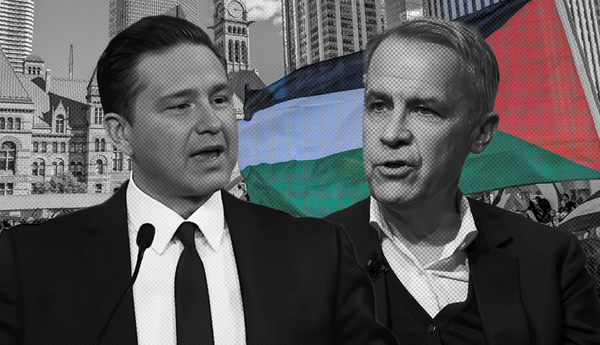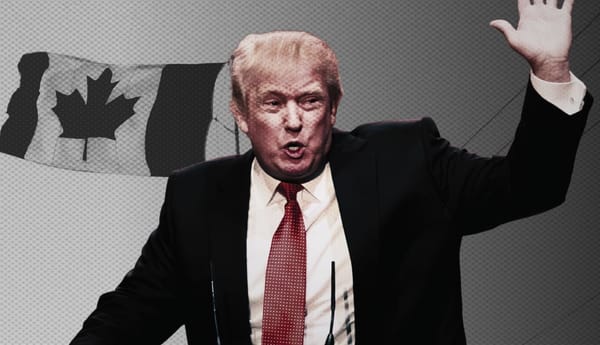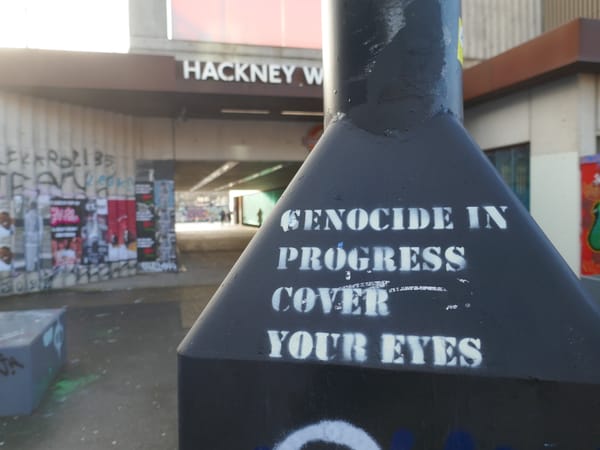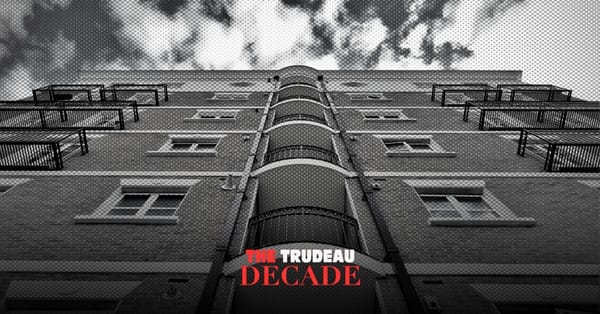This article is part of a series on vaccine passports. After finishing this article, please consider reading the article we published against vaccine passports, and then voting.
Earlier this month, the French and Italian governments announced vaccine passports would be required to enter most public venues, including theatres and bars. The passes show that the holder has either been vaccinated against COVID-19 or had a negative test within the last 48 hours.
The announcement had an immediate impact: Within a week of the French announcement, more than 3.7 million people booked vaccine appointments.
The argument for why Canada should implement a similar program — with reasonable exemptions for those who can’t be vaccinated — is simple: it would increase the rate of vaccination and, therefore, save lives.
Without policy interventions, a sizable number of people are unlikely to get vaccinated. A June Ipsos poll found that about 82 per cent of Canadians say they will get the shot. The remaining 18 per cent are roughly split between those on the fence and those decidedly opposed to vaccination. With about 30.75 million adults in the country, that means, according to the survey, that there are around 2.7 million people who will likely not get vaccinated, and 2.7 million who are on the fence or hesitant — they may or may not get the vaccine. We should aim to convince as many of them as possible to do so.
The United States is a demonstration of what’s likely to happen if we fail. There, COVID-19 cases among the unvaccinated in some areas are nearing the levels they reached during the worst of the pandemic. As more public spaces open up and normal activities resume in Canada, a significant share of the potentially 2.7 million unvaccinated people may get COVID-19, and a share of them will die.
Vaccine passports will prevent some of these deaths. The European experience with them shows that they’re effective in motivating the unvaccinated to get the vaccine (in fact, they may be the most effective tool we have).
But it’s not just those who are unsure about vaccines that will be protected by vaccine passports. There are a number of other groups who will benefit from a larger share of the population being vaccinated as well.
The first such group are those who can’t get the vaccine. None of the vaccines are yet approved for children under the age of 12. While serious cases of COVID-19 in that age group are rare, they do occur, and several kids and infants in Canada have died. There’s also those who may need to avoid or delay getting vaccinated for health reasons. The Ontario government’s health guidance, for example, suggests that people with specific severe allergies or autoimmune conditions may need to avoid or delay the vaccine in certain circumstances. The safety of those in this group depends on the rest of us getting vaccinated.
The second group are those whose access to medical care is limited due to the strain COVID-19 patients are having on healthcare capacity. On average, these patients stay in the ICU for around two weeks, meaning even a relatively small number of cases can create backlogs elsewhere in the system. This is already putting other people’s lives at risk.
In March, the Globe and Mail documented the case of 71-year-old Pedro Gomez Marin in Toronto who waited 37 days to have an aggressive golf-ball sized tumor removed from his neck, nine days longer than the maximum he was supposed to have to wait for that particular surgery. Ontario’s surgical backlog is currently expected to take more than three years to clear. It’s difficult to know how many people will die because of delayed procedures, but the number is almost certainly not zero.
Unfortunately, we live in a largely atomized society in which concern for individual pursuits and preferences trumps all else. But if there’s a shred of solidaristic feeling left in us, then it demands we do what we can to increase the vaccination rate out of concern for those who remain at risk so long as COVID-19 is spreading.
That said, vaccine passports have faced backlash, including good faith and thoughtful criticism from the left. I have noticed three major objections that we should consider, though I remain convinced on balance that the benefits of vaccine passports vastly outweigh whatever problems they may present.
The first common objection is rooted in concerns about civil liberties and choice. Here it is expressed by Cara Zwibel, the director of the Canadian Civil Liberties Association’s fundamental freedoms program, to the CBC: “The choice to be vaccinated should be … a true individual choice, and there comes a point where if we premise access to certain rights or access to full participation in society on people being vaccinated, that becomes a form of coercion where you’re not really being vaccinated because you choose to. You’re being vaccinated because you feel you have no choice.”
It may be true that those who get vaccinated solely because vaccine passports make normal life inconvenient will feel they have little choice. It’s more likely, however, that the decision to get vaccinated is more complicated than that, and involves weighing a number of factors against each other, like beliefs about the perceived risk of vaccines versus the risk of COVID-19, or the perceived inconvenience of getting a vaccine versus the inconvenience of not being able to access various public spaces while unvaccinated.
Using vaccine passports to tip the scales of this decision doesn’t seem more problematic on individual choice grounds than other mostly uncontroversial public health measures in Canada, such as requiring that public school students get vaccinated for a range of diseases.
But even if this were an incursion into the domain of individual choice, such “choice” is not the only principle we ought to value. We also have duties and responsibilities to each other and our communities that matter. Getting vaccinated is an act of solidarity with those who live around us, and something we ought to encourage — refusing the vaccine, on the other hand, is an act that puts the lives of others at risk and something that ought to be discouraged.
The second objection is rooted in concerns about privacy and surveillance. I’m sympathetic to this concern given the way that virtually all new digital technologies deployed now are quickly weaponized by either state or corporate powers to monitor and shape people’s behaviours.
The answer to this, then, is to remove as much technology — and the surveillance capabilities it permits — from the health pass program. In Ontario, everyone who is vaccinated receives a receipt, in both paper and digital (PDF sent via email) form, with their vaccination status. Simply displaying this, or a similar time stamped receipt showing a negative test, should constitute sufficient proof of vaccination status, with businesses barred from demanding more data as “evidence” of status.
It’s worth noting that the lack of a state-run vaccine passport program doesn’t mean vaccine passports won’t exist — it just means that businesses will begin to implement their own systems for employees and the general public. Indeed, private tech companies are already sprouting up to facilitate just that (cheered on by McKinsey’s golden child Pete Buttigieg). What data they are truly collecting and how they are using it is anyone’s guess.
These private systems will no doubt be more intrusive and involve greater surveillance and privacy breaches than a well-designed public system, which could involve the collection and exposure of no more data than is already being used to administer the vaccine rollout.
Finally, the third objection is that vaccine passports will widen existing inequalities and entrench gaps between the rich and the poor. Here is this view argued in a letter by two pulmonologists and an epidemiologist, published in the New York Times: “An inequitable society cannot equitably provide passports. The less privileged are less likely to have immediate access to vaccines, to be able to travel to get vaccinated, to be able to go to the show or the gym that the passport allows. When viewed in a societal context, a vaccine passport allows the privileged to resume their privileges.”
This is undoubtedly true. Our country is unfair and unequal, and the distribution of vaccines has reflected that, particularly when supply was scarce. Any health pass program that either due to scarcities or deliberate design choices widened inequalities or served to exclude people who wanted the vaccine from participating in public life would be indefensible.
Now that vaccines are abundant and more widely available here, however, it doesn’t need to be the case that vaccine passports contribute to greater inequalities. We’re surely capable of implementing a program that protects public health without exacerbating inequality.
Of course, vaccine passports will not fix existing injustices. The wealthy will still “be able to go to the show or the gym that the passport allows” while the poor won’t, and that is a problem. But it isn’t a problem caused by vaccine passports. It’s a problem caused by capitalism. And it’s that, not vaccine passports, we should oppose.






